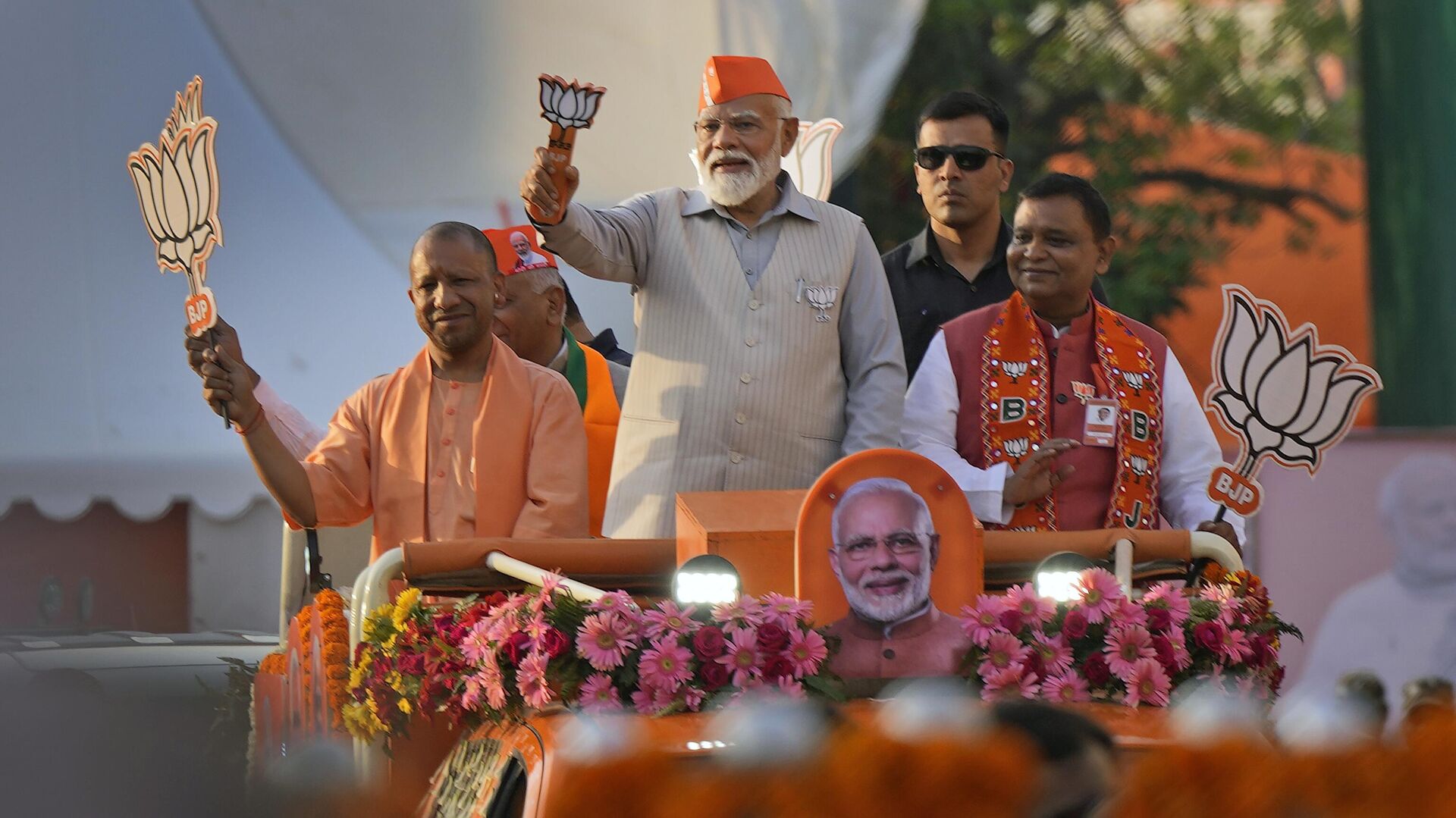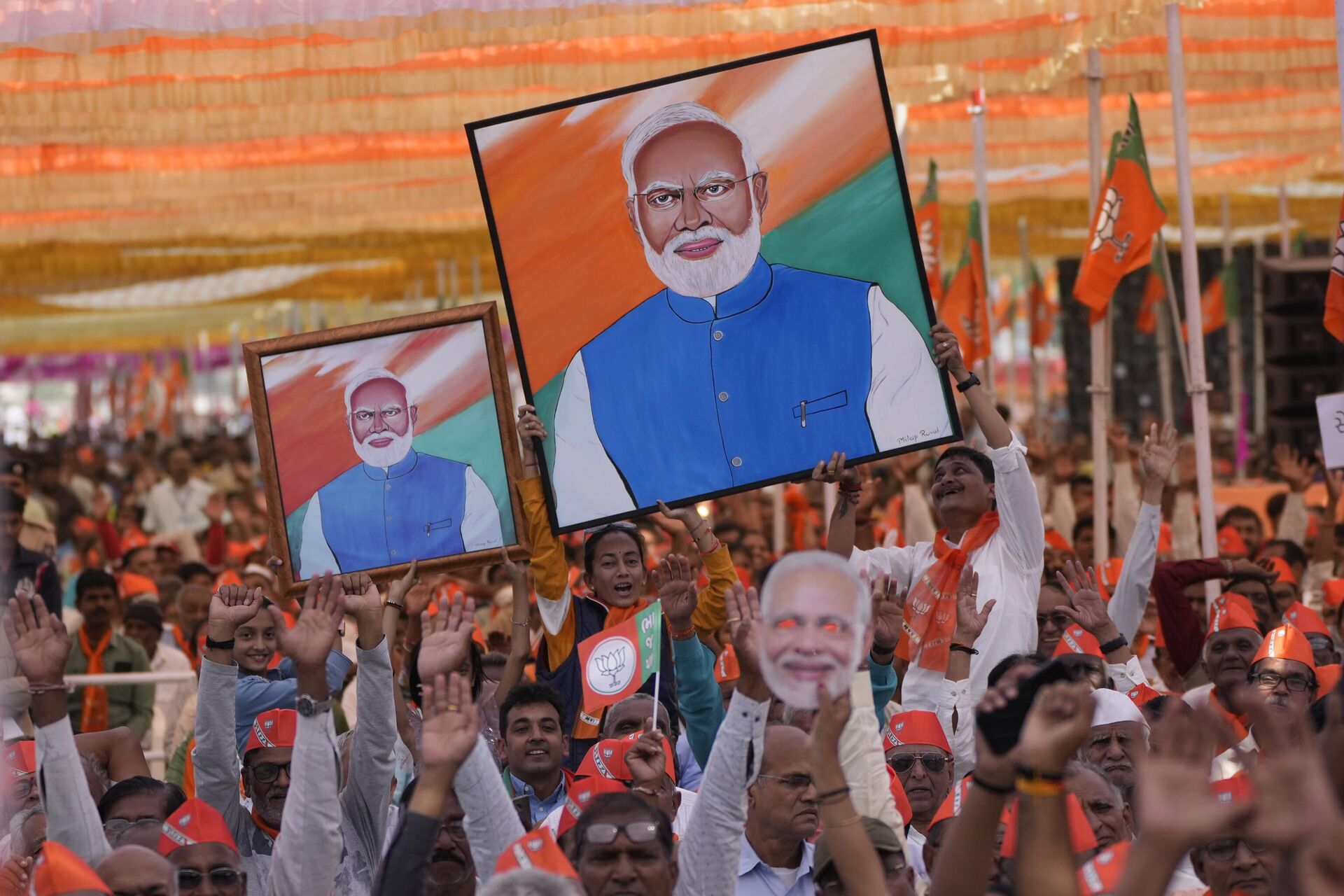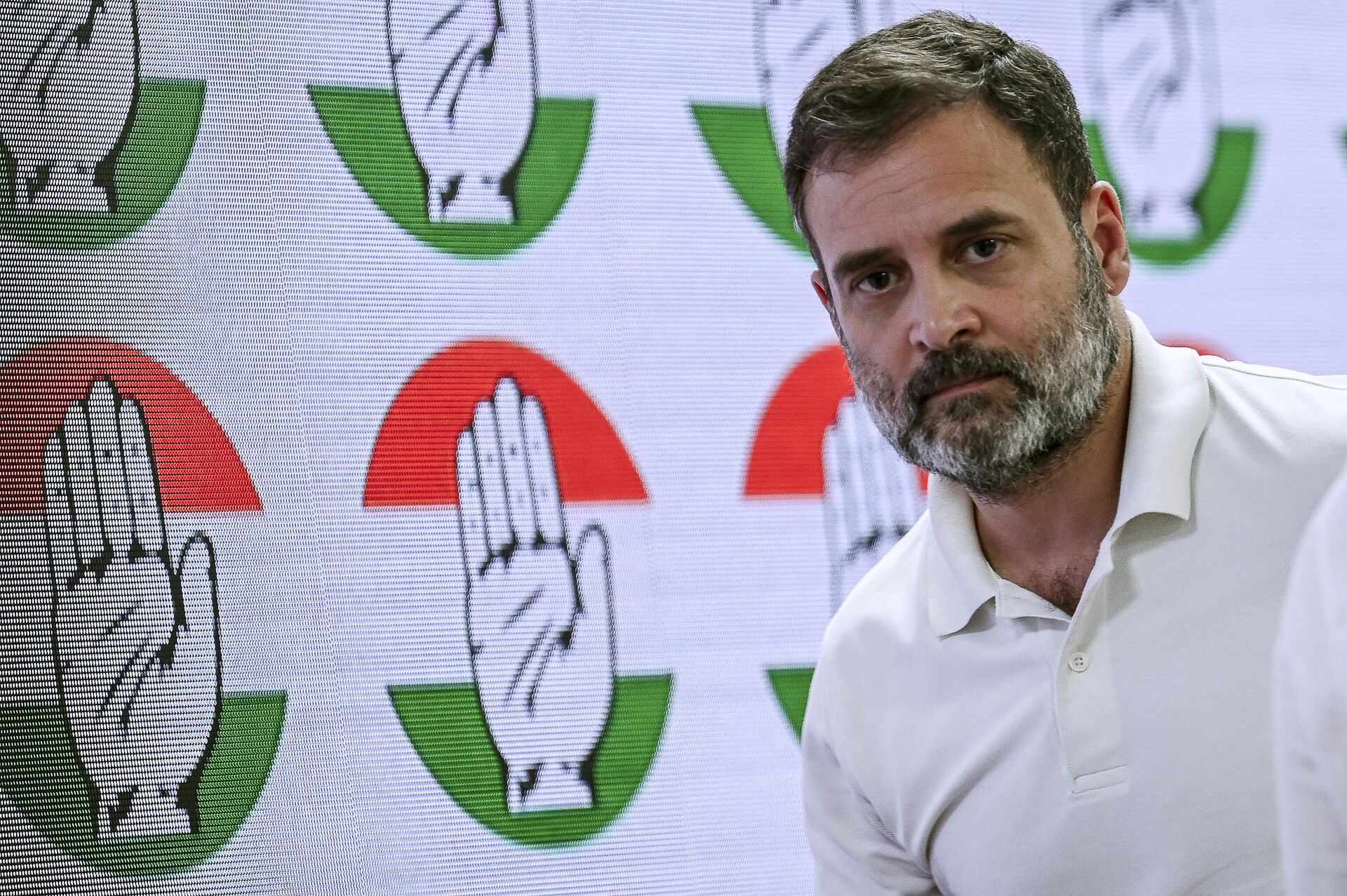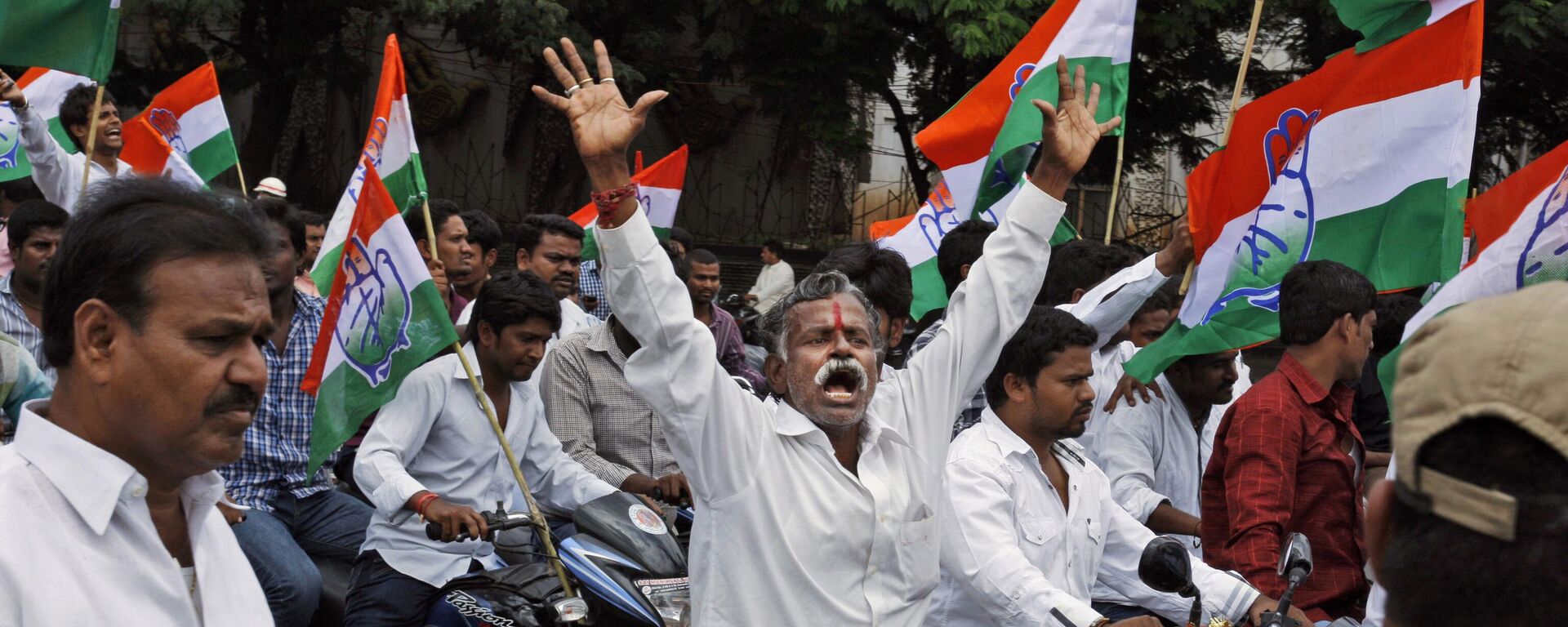https://sputniknews.in/20240418/manifesto-showdown-bjp-vs-congress-7161179.html
Manifesto Showdown: BJP vs. Congress
Manifesto Showdown: BJP vs. Congress
Sputnik India
The manifestos released by the two major political parties – BJP and Congress – have talked abuot domestic as well as foreign policy. However, none of the political parties have mentioned Indo-Russia trade or relation with Russia in the manifesto.
2024-04-18T16:40+0530
2024-04-18T16:40+0530
2024-04-18T16:40+0530
2024 lok sabha elections
india
delhi
new delhi
russia
bharatiya janata party (bjp)
indian national congress (inc)
elections
ministry of external affairs (mea)
narendra modi
https://cdn1.img.sputniknews.in/img/07e8/04/0a/7095314_0:161:3071:1888_1920x0_80_0_0_cccb6625edd759a00ba1ffec47e8f1c2.jpg
In the manifesto released prior to the 2024 Lok Sabha elections, the Bharatiya Janata Party (BJP) pledged to pursue foreign policies that advance India's interests "in the spirit of Vishwa Bandhu" (meaning kinsman of the universe).Meanwhile, the opposition party Indian National Congress has promised to “pay greater attention to our immediate neighbour”.With less than 24 hours left before the start of the biggest festival of democracy, Sputnik India reached out to Sanjay Kumar Pandey, Professor Centre for Russian and Central Asian Studies, School of International Studies, Jawaharlal Nehru University, to draw a comparison between the manifestos of both political parties in terms of foreign policy.Who Tackled Foreign Policy Issues Effectively?Talking about the foreign policy aspect in the manifesto of the political parties, Professor Pandey emphasized the importance of viewing them within the context of domestic elections. He noted that these manifestos should not be seen as comprehensive documents outlining the foreign policies of the parties, but rather as statements designed to inform voters about the parties' stances on foreign policy issues.According to Professor Pandey, while both parties have been clear in some areas of their foreign policy goals, there are areas where their positions are less transparent.When discussing Congress' foreign policy, he noted that it tends to be more reactive in nature, and critiques the BJP on a variety of issues, claiming that the saffron party has been perceived as weak, ineffective, or even capitulating. One example he referenced was the handling of relations with China.BJP Presents India as Strong Emerging PowerIn the manifesto, BJP has solidly prioritised India’s interests, while Congress promises to “pay greater attention to our immediate neighbours”.For example, on China, the saffron party has promised to accelerate the development of robust infrastructure along the Indo-China border and ensure “freedom of navigation and maritime security in the Indian Ocean”.Meanwhile, Congress without mentioning the Indian Ocean region’s security has promised to “restore the status quo ante on India’s border with China”.When asked whether the Congress manifesto appears more compromising than the BJP's portrayal of India as a strong nation, Professor Pandey stated that he does not believe that. However, he thinks that the BJP is striving to project India as a strong emerging power, as a voice of the Global South, and a country capable of effectively pursuing its national interests.Congress' Vow to Mend India’s Global Image Won’t Go Well With VotersSharing his views on Congress' promise to repair India's international image, the professor stated that it should not be perceived as an effort to tarnish the country's reputation. Rather, he believes that the longstanding party's foreign policy stance is primarily aimed at critiquing Prime Minister Narendra Modi and his leadership style. Nonetheless, he acknowledges that the Congress' claims about India's international image being tarnished hold some merit. On one hand, India's global standing, its leadership in the Global South, and its achievements in forums like the G20 have been widely acknowledged, positioning India as an emerging global player. However, on the other hand, concerns about minority rights, human rights, and freedom of expression in India have been raised by certain sections of the West, Western media, and the US.He, therefore, said that Congress could have avoided certain comments which can be misinterpreted by many people.Omission of Russia From Both Parties' Manifestos Seems UnfortunateDespite strong and long-standing relations with Russia, none of the parties mentioned it in their manifestos.Weighing in on the matter, the JNU professor said that he is not very happy with this and if the political parties had mentioned the better bilateral ties with Russia, it would have been welcoming.He, however, believes that there could be a reason why the political parties didn’t touch the topic of Russia in their manifestos.He pointed to the presence of critical voices, particularly in the West, that discouraged political parties from addressing it.In addition, the professor believes that the political parties may have underestimated the importance of trade with Russia. This is surprising, considering India's longstanding, strong, and dependable relations with Russia. Trade with Russia is not a passing trend, but a consistent factor that will continue to be significant in the future.“I do believe that the spurt in relations with Russia could have been welcomed or mentioned by both the political parties because this trade has increased during the BJP regime while Congress talks about India’s traditional foreign policy which was very much focussed on the Soviet Union and Russia,” Professor Pandey concluded.
https://sputniknews.in/20240405/indian-congress-releases-manifesto-ahead-of-lok-sabha-elections-7059748.html
india
delhi
new delhi
russia
global south
Sputnik India
feedback.hindi@sputniknews.com
+74956456601
MIA „Rossiya Segodnya“
2024
Rahul Trivedi
https://cdn1.img.sputniknews.in/img/07e6/0c/13/136500_0:0:628:627_100x100_80_0_0_72097ff894c7446b70d2efafcb719720.jpg
Rahul Trivedi
https://cdn1.img.sputniknews.in/img/07e6/0c/13/136500_0:0:628:627_100x100_80_0_0_72097ff894c7446b70d2efafcb719720.jpg
News
en_IN
Sputnik India
feedback.hindi@sputniknews.com
+74956456601
MIA „Rossiya Segodnya“
Sputnik India
feedback.hindi@sputniknews.com
+74956456601
MIA „Rossiya Segodnya“
Rahul Trivedi
https://cdn1.img.sputniknews.in/img/07e6/0c/13/136500_0:0:628:627_100x100_80_0_0_72097ff894c7446b70d2efafcb719720.jpg
manifesto of bjp, congress manifesto 2024 lok sabha elections, sankalp patra, nyay patra, modi ki guarantee, india-russia relations, vishwa bandhi, g-20, global south, india is voice of global south, narendra modi, foreign policy of india, jawaharlal nehru university, maritime security, india first, bjp pushes for india's interest in its manifesto
manifesto of bjp, congress manifesto 2024 lok sabha elections, sankalp patra, nyay patra, modi ki guarantee, india-russia relations, vishwa bandhi, g-20, global south, india is voice of global south, narendra modi, foreign policy of india, jawaharlal nehru university, maritime security, india first, bjp pushes for india's interest in its manifesto
Manifesto Showdown: BJP vs. Congress
The manifestos released by the two major political parties – BJP and Congress – have talked about domestic as well as foreign policy. However, none of them have mentioned Indo-Russia trade or relations with Moscow in the manifesto.
In the manifesto released prior to the 2024 Lok Sabha elections, the Bharatiya Janata Party (BJP) pledged to pursue foreign policies that advance India's interests "in the spirit of Vishwa Bandhu" (meaning kinsman of the universe).
Meanwhile, the opposition party Indian National Congress has promised to “pay greater attention to our immediate neighbour”.
With less than
24 hours left before the start of the biggest festival of democracy,
Sputnik India reached out to
Sanjay Kumar Pandey, Professor Centre for Russian and Central Asian Studies, School of International Studies, Jawaharlal Nehru University, to draw a comparison between the manifestos of both political parties in terms of foreign policy.
Who Tackled Foreign Policy Issues Effectively?
Talking about the
foreign policy aspect in the manifesto of the political parties, Professor Pandey emphasized the importance of viewing them within the context of domestic elections. He noted that these manifestos should not be seen as comprehensive documents outlining the foreign policies of the parties, but rather as statements designed to inform voters about the parties' stances on foreign policy issues.
According to Professor Pandey, while both parties have been clear in some areas of their foreign policy goals, there are areas where their positions are less transparent.
“As far as clarity is concerned, the BJP has devoted more space, perhaps partly because of the fact that their ‘success’ in foreign policy is one of the planks on which they are canvassing and fighting the elections. So, it is generally believed by large sections of the population that the BJP has done pretty well when it comes to foreign policy,” the professor said.
When discussing Congress' foreign policy, he noted that it tends to be more reactive in nature, and critiques the BJP on a variety of issues, claiming that the saffron party has been perceived as weak, ineffective, or even capitulating. One example he referenced was the handling of relations with China.
He still believes that, even though both parties have clarity on certain matters, they have remained silent on others, BJP has more effectively addressed the issues.
BJP Presents India as Strong Emerging Power
In the manifesto, BJP has solidly prioritised India’s interests, while Congress promises to “pay greater attention to our immediate neighbours”.
For example, on China, the saffron party has promised to accelerate the development of robust infrastructure along the Indo-China border and ensure “freedom of navigation and maritime security in the Indian Ocean”.
Meanwhile, Congress without mentioning the Indian Ocean region’s security has promised to “restore the status quo ante on India’s border with China”.
When asked whether the Congress manifesto appears more compromising than the BJP's portrayal of India as a strong nation, Professor Pandey stated that he does not believe that. However, he thinks that the BJP is striving to project India as a strong emerging power, as a voice of the Global South, and a country capable of effectively pursuing its national interests.
Congress' Vow to Mend India’s Global Image Won’t Go Well With Voters
Sharing his views on Congress' promise to repair India's international image, the professor stated that it should not be perceived as an effort to tarnish the country's reputation. Rather, he believes that the longstanding party's foreign policy stance is primarily aimed at critiquing Prime Minister
Narendra Modi and his leadership style.
Nonetheless, he acknowledges that the Congress' claims about India's international image being tarnished hold some merit. On one hand, India's global standing, its leadership in the Global South, and its achievements in forums like the G20 have been widely acknowledged, positioning India as an emerging global player. However, on the other hand, concerns about minority rights, human rights, and freedom of expression in India have been raised by certain sections of the West, Western media, and the US.
“Despite this, Congress’ promise won’t go well with the voters especially those who will vote for BJP and also a certain section of population who are not traditional BJP voters because the BJP-led federal government has clearly refuted the claims made by the West, the Western media and the US and also asked them to stay out of internal matters of the country. So, this presents a very strong image of India,” Professor Pandey noted.
He, therefore, said that Congress could have avoided certain comments which can be misinterpreted by many people.
Omission of Russia From Both Parties' Manifestos Seems Unfortunate
Despite strong and long-standing relations with Russia, none of the parties mentioned it in their manifestos.
Weighing in on the matter, the JNU professor said that he is not very happy with this and if the political parties had mentioned the better bilateral ties with Russia, it would have been welcoming.
He, however, believes that there could be a reason why the political parties didn’t touch the topic of Russia in their manifestos.
He pointed to the presence of critical voices, particularly in the West, that discouraged political parties from addressing it.
However, he still feels that criticism from the West would not carry much weight with Indian voters, as they largely support the Indian government based on national interest. He sees Western criticism as hypocritical, as they themselves continue to purchase Russian gas and oil through various routes.
In addition, the professor believes that the political parties may have underestimated the importance of trade with Russia. This is surprising, considering India's longstanding, strong, and dependable relations with Russia. Trade with Russia is not a passing trend, but a consistent factor that will continue to be significant in the future.
“I do believe that the spurt in relations with Russia could have been welcomed or mentioned by both the political parties because this trade has increased during the BJP regime while Congress talks about India’s traditional foreign policy which was very much focussed on the Soviet Union and Russia,” Professor Pandey concluded.






